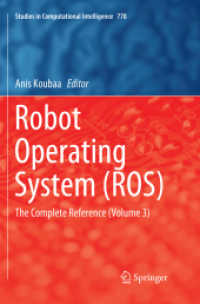- ホーム
- > 洋書
- > ドイツ書
- > Humanities, Arts & Music
- > Philosophy
- > general surveys & lexicons
Full Description
This intellectual biography provides an organic framework for understanding Antonio Gramsci's process of intellectual development, paying close attention to the historical and intellectual contexts out of which his views emerged.








